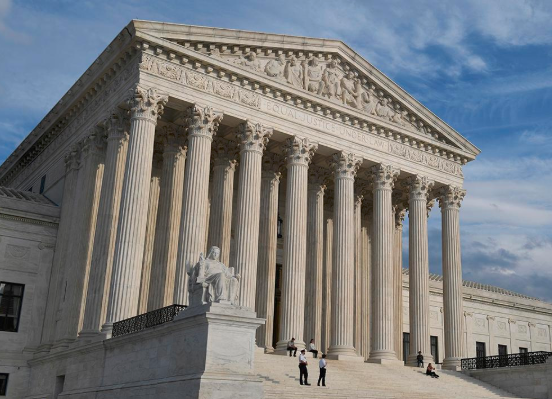President Trump’s two appointees to the U.S. Supreme Court -- Neil Gorsuch and Brett Kavanaugh -- were expected to help bring about a "conservative revolution” on the nation’s highest court. But in two out of three rulings by the court Tuesday, Gorsuch and Kavanaugh found themselves on opposing sides.
The two cases in which the justices did not agree involved an Indian tribe and Washington state taxes, and another involving maritime law.
Gorsuch, who was nominated by Trump in 2017 to fill the seat Senate Republicans held open for more than a year after Justice Antonin Scalia’s death in 2016, sided with the liberal justices in ruling that the Yakama Nation doesn’t have to pay a Washington state fuel tax. He cited an 1855 treaty that made a “handful of modest promises” to the tribe, including the right to move goods to market freely.
CHIEF JUSTICE ROBERTS' RECENT VOTES RAISE DOUBTS ABOUT 'CONSERVATIVE REVOLUTION' ON SUPREME COURT
Yakama Nation Chairman JoDe Goudy praised the ruling. In a statement cited by NW News Network, he wrote: “Today marks a decision that reinforces the Yakama way of life, both in historical context as well as modern interpretation."
Gorsuch's opinion was joined only by Justice Ruth Bader Ginsburg, the leader of the court's liberal wing. The other three liberal justices voted for the same outcome, but for different reasons.
Kavanaugh dissented from the Gorsuch and the liberals. He argued that the 1855 treaty merely gave tribal members equal rights to travel.
The other case that saw Kavanaugh and Gorsuch at odds addressed a lawsuit brought by two Navy veterans who had been exposed to asbestos. Writing the court’s opinion, Kavanaugh said that the makers of pumps, turbines and blowers that required asbestos insulation to operate properly should have warned about the health dangers of asbestos exposure. This is so, Kavanaugh wrote, even though the companies did not manufacture or sell the asbestos to the Navy. The liberal justices and Chief Justice John Roberts also were in the majority.
Gorsuch, whose dissent was joined by Justices Samuel Alito and Clarence Thomas, wrote that the manufacturers "are at risk of being held responsible retrospectively for failing to warn about other people's products."

